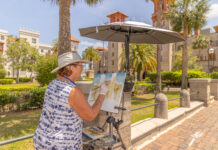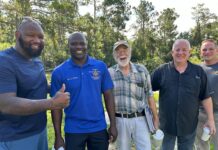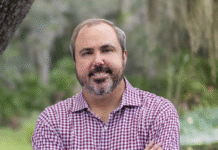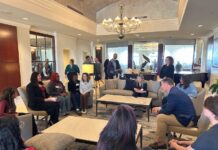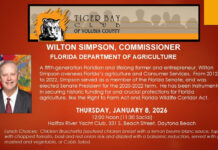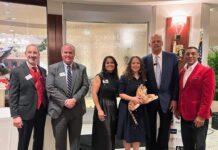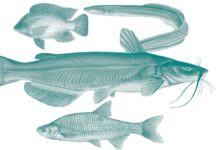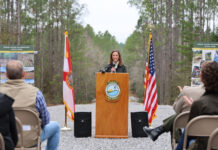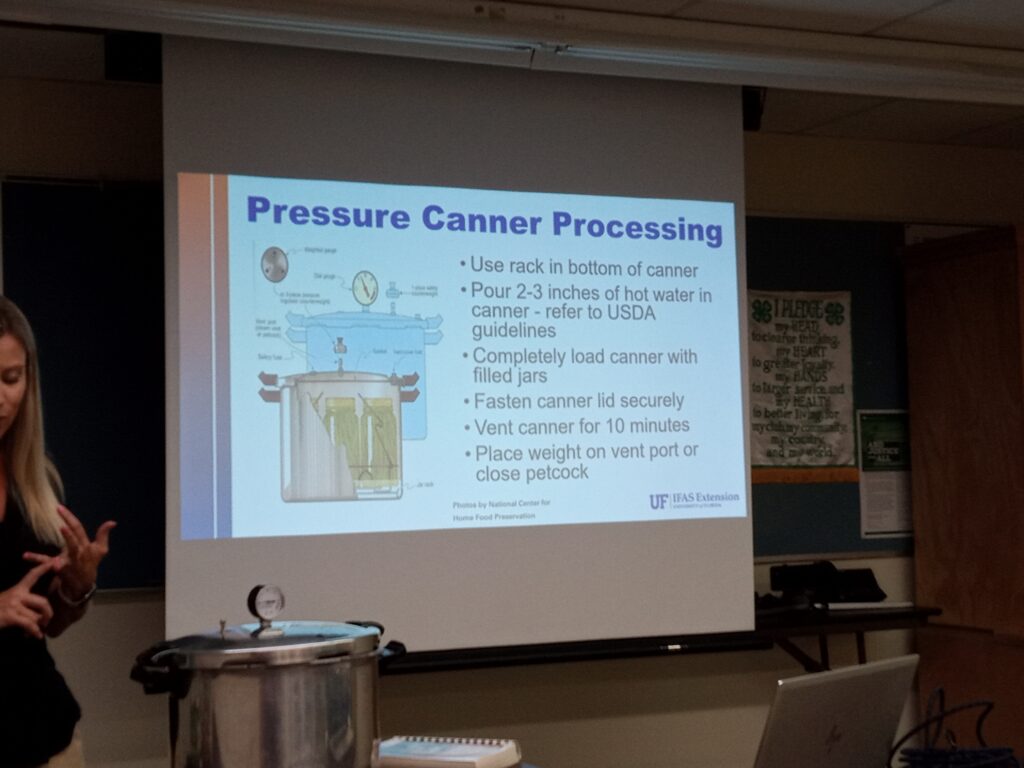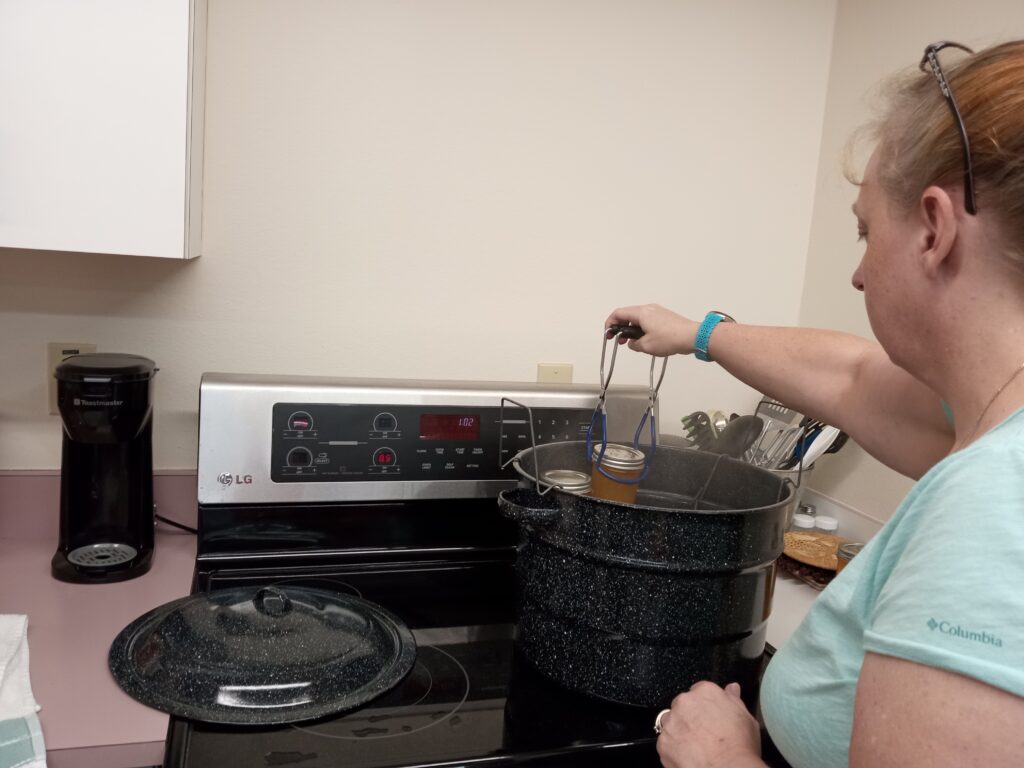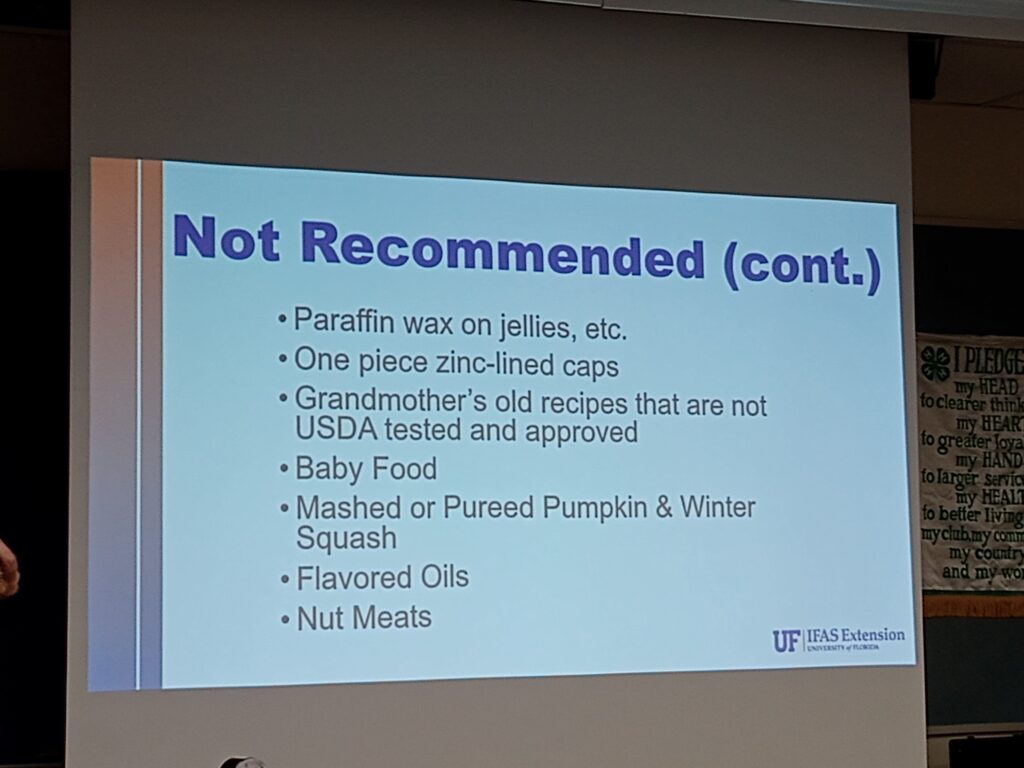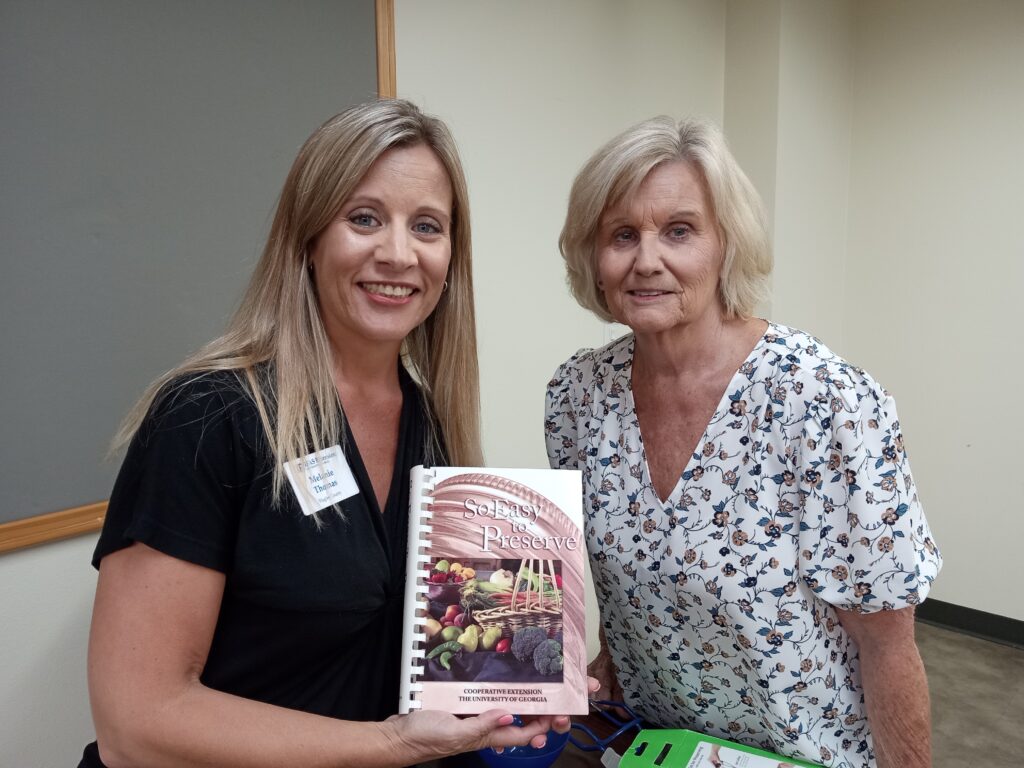Flagler County, FL – Those of a certain generation can remember summers at grandma’s house snapping beans and shelling peas, preparing to ‘put them up for the winter’. Using a variety of methods often passed down from generation to generation that included plenty of salt and side meat, fruits and vegetables were stored for leaner times.
Jarring or canning is nearly a lost art among the younger generations.
Long gone are the days of home economics in school curriculums or even as an elective, but the health and economic benefits of food preservation as a DIY operation are simmering back to the surface and sparking interest.
Teaching the Food Preservation 101 class on Wednesday, July 20 at the University of Florida IFAS Extension Office in Bunnell, Flagler County Extension Director and Family Consumer Sciences Agent Melanie Thomas took attendees through the basics of the USDA approved processes during the four and a half hour class.
Focusing on canning, freezing and drying, it was a course for anyone interested in learning more about safe food handling combined with an in-depth tutorial on the basics of food preservation, proper technique, and prevention of food borne illness.
Thomas shared tips and cautionary tales of her own experiences in food preservation during the demonstrations, while answering safe food handling and recipe questions from students.
“With this particular class, I’m mainly trying to get across the importance of food preservation, the three different types of methods and the safety regulations. USDA has certain safe techniques, especially for canning, and we want to make sure everybody is doing everything safely,” said Thomas.
“I’ve had crazy incidences with my experiences and I always use those as techniques of learning lessons for other individuals,” she shared.
Students were provided with a hands on experience to close out the session, following a simple jelly making recipe that required attentive maneuvering in the kitchen. Several students took home a copy of the “So Easy To Preserve” manual created by the University of Georgia Cooperative Extension, providing detailed instructions and recipes for food preservation in a home setting.
Dispelling myths and old wives tales handed down throughout the years, Thomas stressed the importance of safe food handling throughout the class.
“We have a lot (of myths). Open kettle canning is one that we get a lot of questions on. It’s a method that’s no longer and actually never been utilized or supported by the USDA. That’s just an idea of boiling something for a certain amount of time, putting it in jars and never processing it. That’s one thing that’s always a little bit scary. We’ve had incidences of somebody who thought that making a jam, it was supposed to harden or thicken while it was in the canner so they continued to process it over and over, hoping it would form. By the time it finally cooled, after it was taken out, it was hard as a brick and ended up being almost like concrete that you couldn’t get out of the jar,” she recounted.
“It’s about making sure people are not becoming sick, making sure that they’re not infecting others. We need to make sure we’re doing things in a safe manner to keep us healthy in the long run.”
More Than Tradition
Leading the Flagler County UF/IFAS Extension Office, Melanie Thomas comes from a line of Extension Agents. Her mom, Jackie Schrader, has decades of experience in the agricultural field, serving as the Clay County Extension Agent among her many roles. Melanie’s stepfather Dan Schrader was also a member of the agricultural and extension community, serving as Flagler County’s extension agent before his passing.
Now, after working in large and small extension offices around the state, Thomas is following in their footsteps, educating and helping to oversee the needs of Flagler County’s office for the past two years.
“I was in Extension for many years, as well as my husband. We raised Melanie and dragged her to all kinds of Extension events,” said Schrader.
“Eventually, she decided after she obtained her health degree, she decided she wanted to do it as well, and has been in Extension for 15 years. We’ve enjoyed teaching together, now, I’m kind of her volunteer, so to speak. It’s been a lot of fun as well as educational, and continues to be.”
Retired, Jackie is Melanie’s most reliable volunteer, and she’s proud to see what her daughter is accomplishing by teaching others.
“Her stepfather would be so proud that she is doing the same thing, as am I.”
An educator at heart, Thomas is incorporating her skills into the changing face of Extension programming.
“It can be overwhelming to come back and fill the shoes of somebody you certainly looked up to your entire life in Extension,” shared Thomas.
“Working in Extension was never something I thought I was going to do. I honestly, truly thought it was about mainly agriculture, and doing things that maybe I wasn’t interested in,” she said.
“I went to school and got my degree in health education and as Extension has evolved over the years, we’ve really kind of gone back into instead of just teaching about cooking and cleaning and those kinds of things, we’re really gotten into the health and nutrition aspect of teaching and that’s really where my background and my passion was, and so that’s what’s led me into doing these kinds of classes.”
As a multi-faceted issue, being able to educate the community starting from a very young age about ways to improve their health and wellness, is rewarding for Thomas.
“Especially with food preservation, it’s the health aspect of it. (It’s) not just the financial aspect of it and the food safety aspect, but the health and nutrition aspect of the sodium in our food, and what’s in our foods and the preservatives that we don’t have to have added, and how much that can go with certain dietary guidelines people have to follow these days.”
For more information about programs and classes at the Flagler County UF/IFAS Extension Office, visit https://sfyl.ifas.ufl.edu/flagler.












